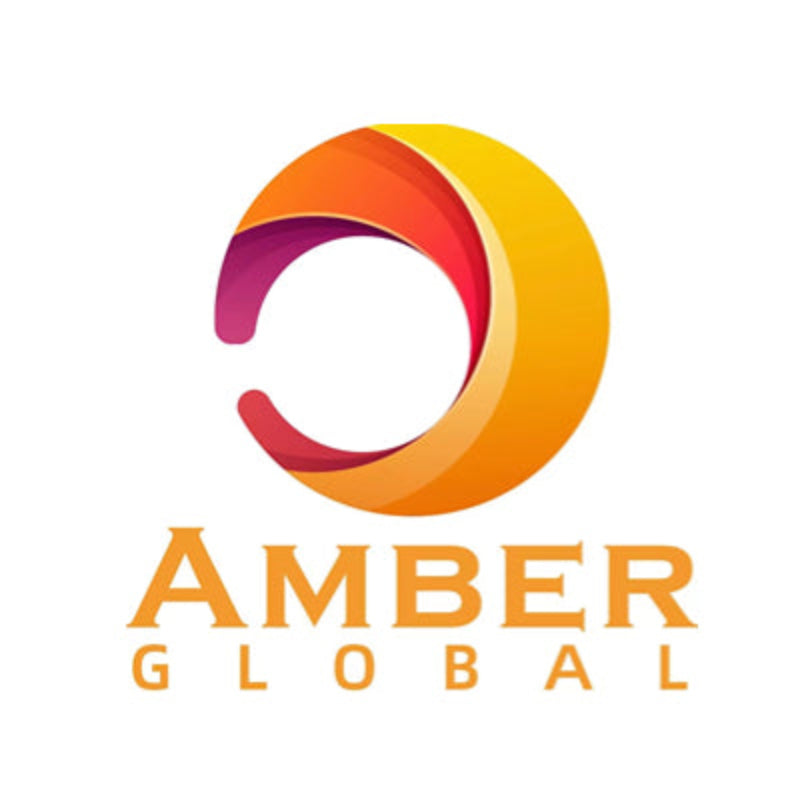Czech VAT FAQ

VAT in the Czech Republic
The Czech Republic joined the EU VAT system in 2004 as part of the EU single market economy. The VAT directive issued by the European Union sets out the principles of the VAT system to be implemented in each member State. These directives take precedence over local legislation.
The Tax and Customs authorities of the Czech Republic are responsible for the administrative supervision of VAT in the Czech Republic. The Moravian-Silesian tax authority is the tax authority responsible for entities that are not in the Czech Republic.
The Czech Republic VAT, locally known as the "dakov z p R idane hodnoty (DPH)", is an indirect consumption tax levied on the value added of the product or service, particularly in various parts of the supply chain.
Scope of Taxation
Economic activity refers to independent commercial activities as well as the continual exploitation of tangible and intangible assets to generate revenue, including the practice of a profession.
Taxable transactions include:
- Supplies of goods, for consideration by a taxable person acting as such, with the Czech Republic as the place of supply.
- Supplies of services for consideration by a taxable person acting as such with the Czech Republic as the place of supply.
- Intra-Community acquisitions by a taxable person or non-taxable legal person for remuneration, and acquisitions of new means of transport from another Member State for consideration by a non-taxable person.
- Imports of goods into the Czech Republic.
Taxable persons include:
- Independent entities who carry out economic activity.
- Non-commercial entities such as public bodies carrying out an economic activity that compete commercially.
Czech VAT rates
VAT is generally charged at 21% on supplies of goods and services within the Czech Republic. Certain supplies (e.g. groceries, construction works related to social housing) are taxed at a rate of 15%, and a second reduced rate of 10% is applicable for specified categories of goods (some medicaments, books, newspapers, and also supply of heat and cold).
From 1 May 2020, the second reduced VAT rate of 10% is applicable also for drinking tap water, catering services, soft drinks and draft beer, shoe and clothing repairs, hairdresser services, e-books, etc.
Further, as of 1 July 2020, the second reduced VAT rate of 10% applies to hotel accommodation and admission to cultural, sport, theatre, or similar facilities.
Exports are generally exempt from VAT with a credit. Some supplies are exempt without a credit, including the lease of real estate (with certain exceptions), financial and insurance services, education, health, and welfare.
|
Rate |
Type |
Categories of Products or Services |
|
21% |
Standard |
All other taxable goods and services |
|
15% |
Reduced |
Foodstuffs (excluding essential child nutrition and gluten-free food); non-alcoholic beverages; take away food; water supplies; medical equipment for disabled persons; children's car seats; some domestic passenger transport; admission to cultural events, shows and amusement parks; writers and composers; social housing; renovation and repair of private dwellings; cleaning of private households; some agricultural supplies; hotel accommodation; admission to sporting events; use of sporting facilities; social services; supplies to undertaker and cremation services; medical and dental care; domestic care services; firewood; some pharmaceuticals; some domestic waste collection and street cleaning; treatment of waste and waste water; food provided in restaurants and cafes; cut flowers and plants for decorative use; writers, composers and food production |
|
10% |
Reduced |
Water treatment and distribution through public networks Mass public transportation of passengers and their luggage by land and sea Drainage and wastewater treatment and ancillary services Accommodation services Certain catering services, including in restaurants and cafes, provided tobacco products are not within the scope of the service. The second reduced rate generally does not apply to alcohol, apart from draught beer Entry into cinemas, museums and other cultural events Library services Certain household cleaning services Home care for children, and elderly, sick and disabled persons Access to gyms, fitness centers, other recreational facilities and sporting events, and fireworks and light and sound shows Services connected with the operation of recreational parks and beaches Repairs to footwear, leather products, clothing and textiles; Bicycle repair Hairdressing and barbers’ services Turkish baths and saunas, steam baths and salt caves Baby food and formulas Mill products, including certain cereals, potato and dried legumes Malt, starches and wheat gluten Processed cereal products and ready-mix gluten-free products Drinking water Various medicines and pharmaceuticals for medical and veterinary purposes Printed books, children’s picture books, newspapers and magazines and music, provided that no more than 50% of the space is allocated to advertising. The second reduced rate also applies to colouring books, maps, and audiobooks on tangible media. Article 47(5) of the VAT Act provides that like supplies in electronic form are also subject to the second reduced rate. |
|
0% |
Zero |
Intra-Community supplies, where the supply of goods is made to a person registered for VAT in one EU Member State, provided the supplier can demonstrate that the goods have been transported to another EU Member State. The export of goods The transport and services directly related to the import and export of goods The international transport of persons |
VAT Registration
Both EU and non-EU foreign companies can register for VAT in the Czech Republic without having to set up a company or a permanent establishment there - this is known as non-resident VAT transactions. There is no VAT threshold for non-resident traders to register; The VAT number must be in place before the taxable supply begins. The flexibility to refund Czech VAT incurred prior to registration is limited, but the potential penalty can be high.
Any Czech Republic company with a turnover of more than CZK 2 million (CZK) for 12 consecutive months must be registered as a VAT taxpayer with the tax authority.
For non-resident companies, there is no registration threshold, but they must be registered as VAT taxpayers if:
Make any supply subject to Czech VAT (unless the responsibility for reporting and paying VAT is transferred to the recipient of the supply), or supply goods from the Czech Republic to another EU Member State.
If a company provides or will provide taxable supplies or VAT free supplies in the Czech Republic, it may voluntarily register as a VAT taxpayer even if its turnover does not meet the threshold.
In some cases, a company that has not registered for VAT incurs VAT obligations due to the purchase of goods or services and becomes the admissible person for VAT. A person identified as VAT pays VAT only on supplies received and is not entitled to recover the relevant input VAT on his or her VAT return.
exemption
Individuals whose annual turnover does not meet or exceed the registration threshold, individuals who carry out VAT exempt transactions without recovering input tax, and individuals who are not considered to be engaged in economic activities do not need to register for VAT.
Registration process
VAT payers shall apply to the Czech Tax Authority to be VAT registered. Electronic applications must be submitted through the General Financial Directorate’s Electronic Tax Portal. The application should be in the correct format to be effective.
Registration can be approved, and a VAT number can be issued in the span of 30 days or earlier. The absence of an assigned number does not relieve a person of the obligation to account and pay VAT while waiting, for mandatory registration.
Taxable individuals shall report to the tax administrator the place where key management takes place if it differs from the address of the registered one stated in the VAT registration application. Moreover, changes to this address must also be reported to the tax administrator using the Application for Change of Registration Data.
What information is required to get a Czech VAT number and registration
The Czech tax office will require the appropriate forms to be completed, and submitted with the following documentation:
- VAT certificate to prove the business is registered for VAT elsewhere in the EU, if appropriate.
- Licence to perform economic activities.
- An extract from the company’s national trade register.
- The above documents should be translated into Czech by a certified translator.
VAT Returns
The frequency of the above mentioned returns might differ. It is often necessary to submit only a part of them, depending on the business case, sales, purchases, and the movement of commodities within Europe. All the paperwork and documentation specified can be completed and submitted on the Czech Tax Administration’s portal.
Frequency of Filing
Every person who is registered as a Czech VAT payer must submit an electronic VAT return, either quarterly or monthly:
Filing frequency is monthly by default.
Quarterly filing can be requested if turnover is below CZK 10,000,000. Quarterly filing is not possible for VAT groups and for newly registered VAT payers in the first 2 years of their registration.
Filing Deadline
Submission for the three reports and payment deadline for VAT is 25 days after the end of the relevant return period. If the deadline falls on Saturdays or public holidays, it will be extended to the next business day.
Electronic Filing
Electronic filing for all types of submissions is mandatory in the Czech Republic, under the Czech VAT Law. In addition, other filings such as Control Statements must be submitted in the correct format and structure to be treated as effective.
VAT compliance
After obtaining a Czech VAT number, foreign entities are required to follow the local VAT accounting and tax rates. Requirements include:
- Following the full information requirements for invoices under the Czech VAT Act
- Issuing invoicing for goods or services in accordance with the Czech time of supply rules
- Use of e-invoices, and gaining approvals by customers
- Maintenance of accounting records, which must be retained for at least ten years.
- Issuing of credit notes and other corrections
- Use of approved foreign currency rates
invoice
Czech invoices must have the following information to comply with VAT laws. There is a distinction between a full and a simplified VAT invoice. Here is the underlying information an invoice must contain:
- Date of issue.
- Unique sequential number identifying the invoice.
- Supplier’s VAT number.
- Customer’s VAT number.
- Supplier’s full name & address.
- Customer’s full name & address.
- Description of quantity & type of goods supplied or type & extent of services rendered.
- Date of transaction or payment (if different from invoice date).
- VAT rate applied.
- Taxable value of the supply.
- Total VAT in Czech koruna.
- Where no VAT is charged, a reference to the appropriate statute is made.
For certain retailers, a simplified invoice can be issued with more limited information if the invoiced amount does not exceed CZK 10,000. The simplified invoice may contain:
- The VAT number and name.
- The price per unit.
- The net taxable sale.
- The tax amount.
